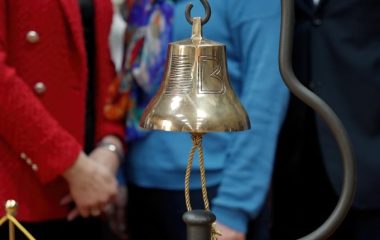
Photo: Balkan Green Energy News
Messer Tehnogas, the only producer and exporter of technical, medicinal and specialty gases in Serbia, is looking to cover a large part of its electricity needs with photovoltaics. Faced with the European Union’s CBAM carbon border tax, the company requires a legal mechanism that would allow its plants to consume its own solar power from other locations, Head of Purchasing Mirjana Jukić said at Belgrade Energy Forum.
Major industrial producers in Serbia affected by the Carbon Border Adjustment Mechanism are primarily relying on their own resources to get exemptions from the EU’s CO2 import levy, which they are required to begin paying on January 1, 2026. They addressed the issue at a panel discussion held within Belgrade Energy Forum. Messer Tehnogas belongs to one of the cleanest industries in the world, but it will have to secure a certified renewable electricity supply, Head of Purchasing Mirjana Jukić pointed out.
The company’s core activity is the production of technical, medicinal and specialty gases. It also makes hardware, cutting and welding equipment. Messer Tehnogas has facilities throughout Serbia. They include a state-of-the-art specialty gases filling station in plant in Pančevo near Belgrade, two new oxygen plants in Bor and a carbon dioxide production unit in Rusanda in the Zrenjanin area, Jukić said.
Exporting to entire EU
Messer Tehnogas, a subsidiary of Germany-based Messer since 1997, is the only producer of oxygen, nitrogen, argon, nitrous oxide and hydrogen in Serbia. It operates four air separation units, a hydrogen plant, several nitrogen generators, a helium transfill, facilities for nitrous oxide, refrigerants, acetylene and porous mass, several technical gases filling plants, two propane and butane filling plants and a compressed natural gas (CNG) filling station.
Everybody knows Messer Tehnogas, Jukić stressed. “We export to all countries in the region, to all countries of the European Union. We are one of the most stable companies in Serbia, with the longest tradition, and, of course, the best quality products,” she added.
Messer Tehnogas is getting ready for introduction of scope 2 emissions into CBAM
At the panel with fellow representatives of companies developing decarbonization projects to avoid CBAM costs, Jukić noted that Messer Tehnogas would be particularly burdened by the EU’s CO2 border tax when so-called scope 2 greenhouse gas emissions are included. The segment refers to electricity used in production, meaning the company needs to proactively adapt to the market or that otherwise it would have its hands tied, she explained.
Much of the manufacturing sector in Serbia are clients of Messer Tehnogas, Jukić said. They require adequate certificates on CO2 for the gases they buy. The company is determined to take the lead in the market by adapting to all legislation, she underscored.
The company has land in Niš where it would install a photovoltaic unit, but only if it can consume the electricity in its plant in Smederevo, Mirjana Jukić explained
In addition to the verification part, the CBAM-affected industry needs Serbia to enable the physical purchase of renewable electricity, according to Jukić. Namely, Messer Tehnogas has land near Niš, the country’s third-largest city, where it could build a 15 MW photovoltaic park, she said. But the production facility there doesn’t consume that much power. The company needs to be allowed to use in Smederevo the electricity that it would produce in Niš, its representative asserted.
Messer Tehnogas has already covered most of its locations with rooftop PV systems, but they will at most cover 2% of consumption, Jukić said.


















Be the first one to comment on this article.